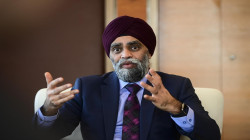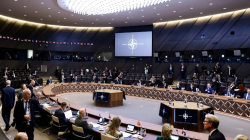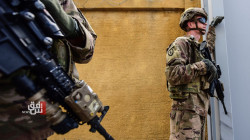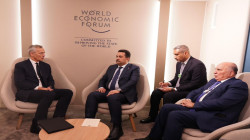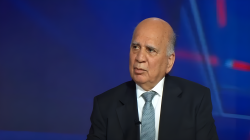Former soldiers say they fear Iraqi trainees committed war crimes with allies' weapons
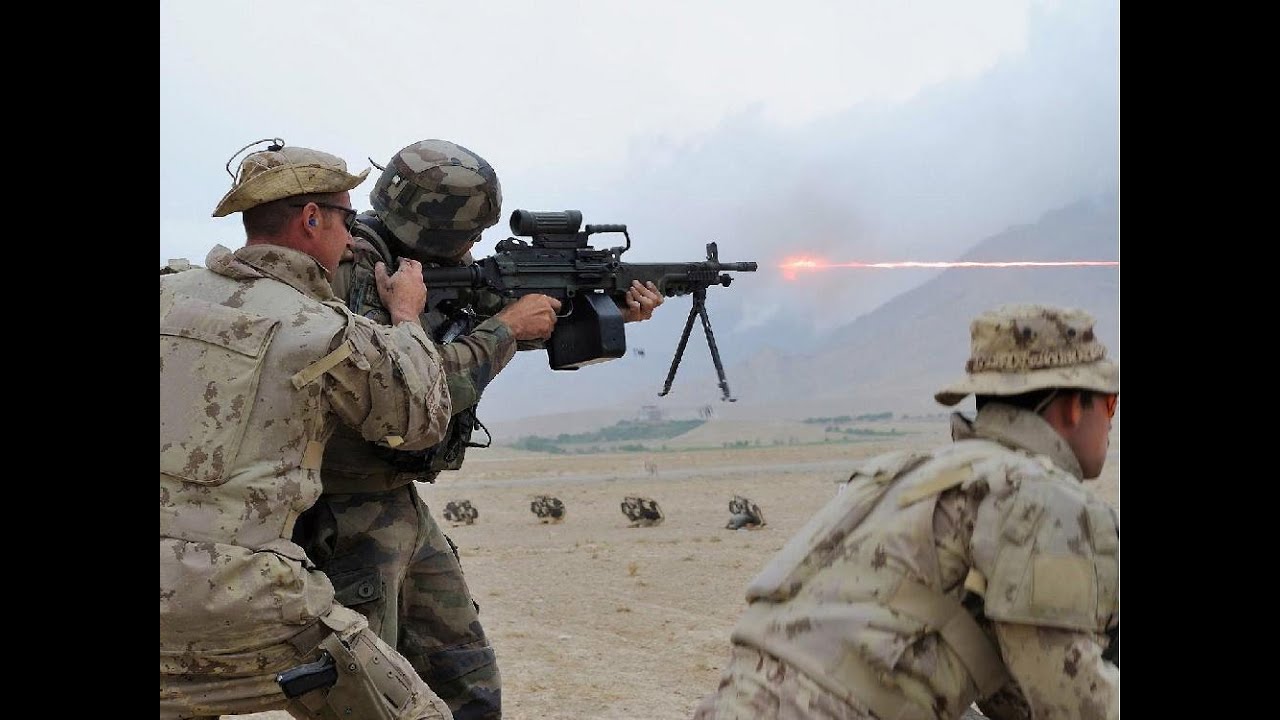
Shafaq News/ Canada not only trained suspected Iraqi war criminals in 2018, it distributed Western-made weapons and protective equipment to them — likely coming from U.S. stockpiles, says a former soldier who was among the first to blow the whistle on videos that implicate the trainees in atrocities.
The Canadian soldiers who were conducting the training in northern Iraq complained at the time to their superiors on the ground. They warned that their Iraqi students — many of them veterans of combat against Islamic State militants — had videos on their cellphones of torture and extra-judicial killings. Those warnings took three full years to make their way to senior military leaders in Ottawa.
Despite that, a Canadian military police investigation concluded this fall that no one involved in the training mission did anything wrong and confirmed that no one has been held accountable for the glaring lapse in reporting, which has implications under international law.
It all amounted to a startling effort to downplay or cover up an incident that placed Canadian troops in a moral quandary — and possibly a legal one as well, said retired sergeant Mike MacInnis. He took part in the training mission and spoke publicly about the matter for the first time to CBC News.
"We're training these guys and we're divesting them equipment," said MacInnis, who wrote a memo to his superiors following his return from the training mission in Iraq almost five years ago to outline his fears and those of his troops.
"We're giving them small arms, we're giving them personal protective equipment after the fact, [and] they're gonna go back to the unit with a significant level of training.
"We just spent a month making these people significantly more efficient at what they've already been doing. And what they've already been doing was committing war crimes."
MacInnis said he's not sure where the weapons came from, only that they passed out the equipment at the end of course.
One other former soldier who took part in the training deployment spoke to CBC News but requested anonymity, fearing retribution against his pension. That soldier backed up MacInnis's account of how the mission was handled.
In 2018, Canadian troops were sent to a U.S. base at Qayyarah, near Mosul in northern Iraq, as part of the American-led Operation Inherent Resolve to train Iraqi security forces as part of an international effort to stabilize the region after the defeat of the Islamic State in Iraq and Syria.
Despite assurances of Canadian commanders at the time that no Shia militia members would be trained, both soldiers said that several Iraqis in the very first class of trainees identified themselves as members of the notorious paramilitary groups.
Both Canadian soldiers paint an account of institutional and political indifference. Their remarks and eyewitness testimony also raise disturbing new questions about how closely the trainees who worked with Canadian soldiers were vetted by the U.S. forces running the base — and whether the Iraqi trainees went on to commit further war crimes.
The cellphone videos were proudly displayed by a number of Iraqi trainees on the very first day of training, as Canadian troops attempted to determine the trainees' combat experience.
MacInnis said a trainee named Waheed walked right up to him and showed him video of what appeared to by a lynching.
"It was taken from almost a selfie perspective," MacInnis said. "This guy was taking a selfie while a man was being hung from what appeared to be the barrel of a tank, or the barrel of something.
"The guy was being raised over the floor, and I'm watching this guy getting hung, and this dude is like, 'Yeah, like, check it out. We got them.'"
The gruesome show-and-tell happened all over the camp, said MacInnis.
'Essentially, they were bragging'
Asked whether Canadian troops knowingly trained suspected war criminals, MacInnis answered without hesitation.
"Absolutely," he said. "No doubt in my mind."
He said the videos he and his fellow Canadian soldiers saw on that first day of training were deeply disturbing.
"There's just ridiculous acts of violence, like, absolutely brutal," MacInnis said of the videos. "And we're seeing things from rape. We're seeing things from murder. We're seeing things from torture, executions — like this whole deal.
"And essentially, they were bragging."
The Canadians started worrying about the sort of people they were training soon after deployment, MacInnis said.
They were told the students would be part of "the wide area security force," he said — essentially a militarized version of the police that help to stabilize areas by manning roadblocks and other so-called static functions.
There were some auxiliary police officers among the trainees, said MacInnis, but the Canadians were alarmed to learn they "had people that even told us that they came from Shia militia groups."
The Shia militias played a crucial role in augmenting the Iraqi army in its campaign to rid the country of Islamic State extremists, but were viewed as a source of political tension among ethnic Sunnis and Kurds, as well as a major human rights concern.
In 2017, Human Rights Watch accused the U.S.-trained Iraqi 16th Division of extra-judicial killings and other abuses during the battle to retake Mosul, the country's second largest city, from the Islamic State.
Even before the trainees walked through the camp gates, there were concerns about the backgrounds of some of the Iraqis who were being turned into security forces.
Former major-general Dany Fortin, who was the Canadian commander of NATO's training mission (which was separate from the U.S.-led Operation Inherent Resolve), told CBC News in August 2018 that he was confident the alliance's training program would be able to screen out war criminals and hardcore Iraqi militia members. There were similar expressions of optimism from commanders in Canada about the coalition mission.
In a statement released Friday, Fortin distanced the NATO training mission from the U.S.-led effort by saying NATO worked exclusively with institutions under direct and effective control of the Government of Iraq.
"It did not train Kurd units, or members of Shia militia groups," Fortin said.
"It provided no equipment, no weapons, no support to combat operations. It worked exclusively in Iraqi military schools, the national defence university and military headquarters in the Baghdad area. As commander, I always had my eye on Force Protection. We had the necessary safeguards and protective measures to conduct our training and advise tasks safely, and those we trained were screened."
MacInnis said the vetting process under the U.S. was less than adequate. The trainees were subjected to biometric screening and their cellphone SIM cards were searched for possible terrorist affiliations.
He said the Canadian troops kept expecting — even hoping — that American officials would find the videos, which they believed were proof of involvement in war crimes.
"It was kind of like, well, they're checking the phones, so this kind of stuff is going to come up," said MacInnis.
But Canadian troops only ever heard of one trainee being ejected from the course after a possible link to a terrorist group emerged.
The response from Canadian commanders on the ground at the time was to tell the troops not to look at the videos, said MacInnis and the unnamed second former soldier. Those commanders later ordered that a class on the laws of armed conflict be added to the training course — something most of the Iraqis sneered at, MacInnis added.
Following several weeks of asking questions on behalf of his troops, MacInnis said, he was sent home early from the tour in December 2018 after being told by his superiors that he was exhausted.
Upon returning to Garrison Petawawa, he said, he was hauled onto the carpet by his regimental sergeant major and the senior warrant officer on the training mission to answer for his criticisms.
"The response that I'd gotten was ... basically, like, 'How dare you come in here and tell us what's wrong with these things?'" MacInnis said.
Later, he said, he wrote a briefing note for his then-battalion commander. MacInnis claims he was told in response that he and his soldiers "should have expected this" in a warzone.
MacInnis said he was flabbergasted.
"Well, I expected the chain of command to do something about it," he said.
MacInnis was prevented from talking with the media about what happened in Iraq while he was in uniform. He asked for a transfer out of the battalion and was given a medical release from the military in October of this year.
CBC News' request for an interview with the Canadian Forces provost marshal was denied in October. Subsequent requests to speak with other senior commanders who would have knowledge of the investigation, and of any actions taken to fulfil Canada's obligations under international law, received no response from the department.
The country's top military commander, Gen. Wayne Eyre, was stopped on the way into the House of Commons defence committee on Thursday. He said he hadn't read the full investigation report but has been briefed on its contents and is satisfied with the depth and thoroughness of the review.
Eyre added that, more importantly, procedures have been put in place to tighten up reporting from the field.
"We've got to put every measure in place that we can to make sure that our people ... are protected, and we do what is necessary under obligations, internationally and domestically. I am confident those are in place," said Eyre.
Amnesty International Canada, however, said there needs to be a follow-up investigation.
"These allegations are horrifying," said Erin Riley-Oettl, Amnesty's manager of human rights law, campaigns and advocacy, in a media statement.
"We thank the brave individuals who reported their experiences and have struggled to bring their concerns to light. No one with evidence of egregious human rights abuses should be told to look away. Otherwise, Canada risks enabling further abuses, harming its global human rights record, and further traumatizing soldiers whose humanity and sense of duty compel them to speak up.
"Canada has a moral obligation to listen to and protect people who try to do the right thing."
MacInnis said he believes the training course should have been shut down until suspected war criminals were weeded out.
The Department of National Defence (DND) was given more than a month to answer detailed questions posed by CBC News about the most important legal aspect of the case — namely whether Canada "provided material assistance to the trainees in terms of body armour and modern weapons."
Late Thursday, after Eyre's remarks, DND released a statement denying the weapons distributed by the soldiers came from Canadian stocks.
"We cannot speak to what assistance was provided by other Coalition members," said that statement. "Our records have no indication of donations from Canada to the Iraqi Security Forces (ISF)."
DND was also asked about Canada's obligation under international law to notify the Iraqi government and the United Nations about the atrocity allegations.
Iraqi officials informed in 2021, DND says
The department initially responded with statements about the measures cited by Eyre to tighten up field reporting procedures. Those statements failed to explain how those procedures were deficient, especially given the fact that military police found no fault among commanders.
Global Affairs Canada also never answered the question about accountability.
The Iraqi embassy in Ottawa declined to comment.
Late Wednesday, DND acknowledged Iraqi officials were notified of the allegations in May 2021 — after they had surfaced in the media.
That notification took place during a meeting between a Global Affairs representative and the Iraqi ambassador to Canada. The meeting took place "at the Ambassador's request," said a DND statement.
"During the meeting, they reiterated that the Canadian Armed Forces takes all allegations of LOAC (Law of Armed Conflict) violations very seriously and informed the Ambassador that DND/CAF was in the process of gathering information in order to make an informed decision and take appropriate measures," DND said in the statement.
Amnesty International Canada said the entire case is deeply disquieting.
"This case raises troubling questions about the Canadian Armed Forces' response to senseless acts of torture, rape and murder allegedly committed by its partners," said Riley-Oettl.
"Canada has a duty to ensure that its military expertise and equipment are not used to commit war crimes or other atrocities. To that end, we urge the Department of National Defence to conduct a thorough, prompt investigation into the handling of the soldiers' complaints and whether Canadian Armed Forces officials met their reporting obligations under Canadian and international human rights law."
Defence Minister Bill Blair said he believes Canada lived up to its legal obligations.
"I am satisfied that the response in 2021 was appropriate and that the appropriate steps were then taken to make sure that Canada's responsibilities and the Canadian Armed Forces responsibilities were appropriately exercised," he said Thursday before a meeting of the defence committee.
NDP defence critic Lindsay Mathyssen was not impressed and said the public deserves to know why the warnings went nowhere for three years, and what Canada did to fulfil its international obligations.
"Time after time, minister after minister, we've seen things buried. It cannot continue," she said.
MacInnis and other soldiers on the training mission were interviewed as part of a military police probe to determine whether commanders on the ground failed to properly report allegations of videos containing atrocities.
"The CFNIS investigation which resulted from these allegations revealed no evidence of negligence (sic) performance of duties, inappropriate conduct nor other offenses by CAF members," said Lt.-Cdr. Jamie Bresolin in a media statement.
Paul Champ, a lawyer who represented Amnesty International in its bid to halt the transfer of suspected Taliban prisoners during the Afghan war, said soldiers on the ground duty their duty but people further up the chain of command did not.
"I think it's disconcerting that they were directed to just continue training those same individuals," said Champ.
"I think these are very serious concerns ... if Canadian military were training individuals who they knew, or had reasonable grounds to believe, had committed war crimes, and then we're providing them with weapons."
(CBC NEWS)
